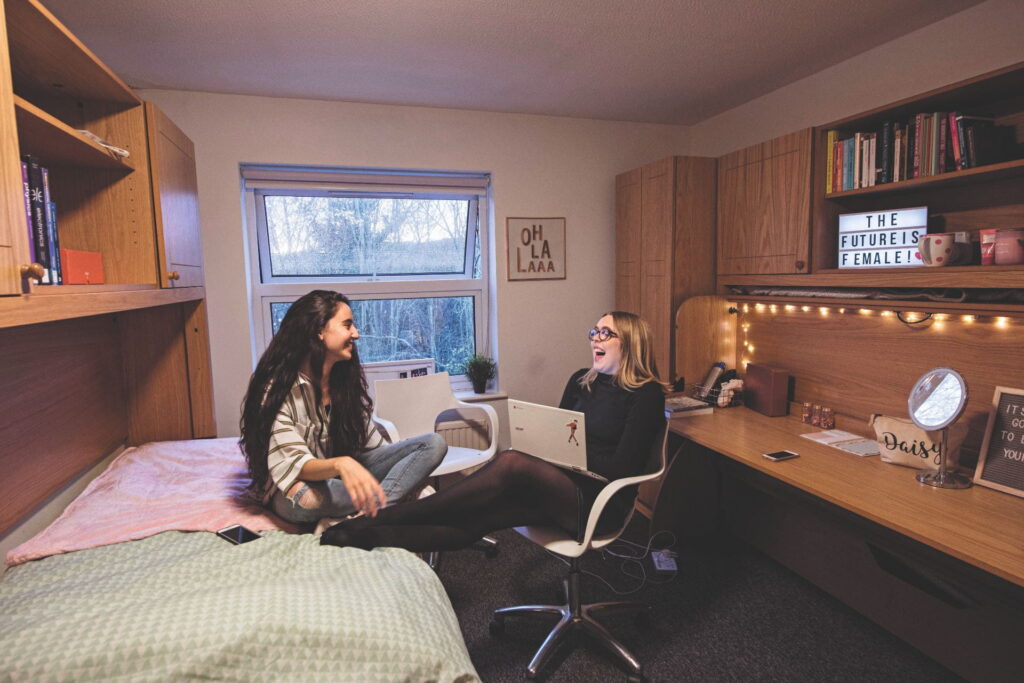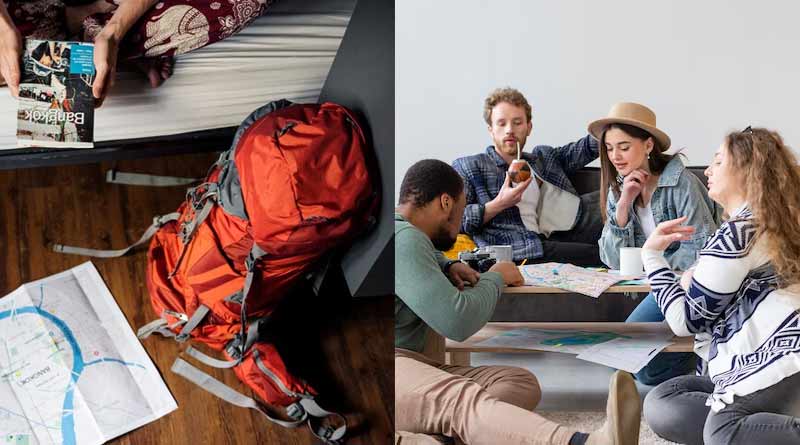Guest houses, hostels, flats, and apartments for rent are less expensive types of accommodation, which moreover create a true atmosphere of a single traveling group. However, such spaces entail the sharing of halls, kitchens, washrooms, and other living areas with other persons. These are common areas and everyone must respect each other to get the best out of the common areas. In this case, travelers show respect to others, pay attention to cleanliness, and follow the set rules in a house hence promoting harmony across the board.
Do’s

- Respect Quiet Hours: Some of these basic etiquette include avoiding noisy activities whenever quiet is to be observed to allow everyone to get a good night’s sleep. Do not engage in night talk, music, or use the phone in areas that are available to other people. Even if you will be arriving late and or leaving early, do not be a nuisance by making too much noise like using headphones or packing your belongings quietly so as not to cause discomfort to others.
- Clean Up After Yourself: Hygiene and cleanliness are very essential when people are living nearby in hotels and other hostel-like facilities. One must clean after preparing food, using the washroom, or after using the lift or stairs. Paying attention to the cleanliness of dishes, disposing of garbage, and keeping one’s belongings neat is a sign of consideration for other people who are going to use the premises, as well as creating a clean environment for everybody who is visiting a house.
- Be Considerate of Shared Spaces: When interacting with using such facilities as bathrooms, kitchens, and other living rooms, one should consider time and space. Do not monopolize the common tools such as shower, stove, or anything that is shared, and always ensure to leave any place you found it. Think how your decision may be an imposition on others, for instance, playing loud music or taking all the refrigerator space for one’s food and drinks so that people can get fair Use of the amenities.

- Communicate with Roommates/Guests: Personal manners while dealing with other residents in the house or other guests are essential in sharing the common space. Explain cooperation concerning such items as lights, thermostats, or refrigerators. When communicating it is important to show courtesy so as not to offend any guests and also make sure that everyone’s preferences are met while in a particular stay.
- Secure Your Belongings: Keep your items safe and out of the way in shared accommodations. Use lockers or safes if provided, and avoid spreading your belongings across communal areas. This not only protects your valuables but also ensures that you’re not taking up more than your share of space, contributing to a clutter-free and organized environment.
- Offer Help, When Appropriate: A small gesture of kindness can improve the shared living experience. Offering help to fellow travelers, such as sharing kitchen supplies or providing travel tips, fosters a sense of community. However, be mindful of boundaries and offer assistance only when it’s needed or appropriate. Acts of consideration create a positive atmosphere for everyone.
Don’ts

- Don’t Invade Others’ Privacy: It is mandatory to respect each other’s space especially when living in houses that have been shared. Do not trespass in other people’s rooms or get involved in other people’s affairs without their consent. People should be allowed to be on their own and feel free to have their own space especially when it comes to speaking or shared areas and not approach anybody intentionally. It is the same with social interactions; all persons value their time of solitude, and therefore they should be accorded the same courtesy.
- Avoid Hogging Shared Resources: When in commons, avoid using one’s hands to touch surfaces, wash with water, or sit on furniture of building infrastructure. ,…actions that entail spending a lot of time in a particular area, for example, too long in the bathroom reduces the time other people spend in there, or taking all the kitchen utensils hogs the area and reduces the time the other party needs them. Clean local areas, and use it time-consuming properly so that the next users can also have their turn on these sectors.
- Don’t Leave a Mess: Failing to wash the dishes after a meal, leaving clothes lying around, or not taking out the trash is quite rude to other people. It creates chaos and can contribute to negative health effects, especially in common areas such as the kitchen or the bathroom. Never leave behind and always restore areas to their original condition to the best of your ability. Cleansing the shared areas guarantees that all residents will have a good time and do not have to deal with various issues.
- Do Not Cause Scenes: Loud parties, blaring music, loud conversations, using a loudspeaker, and even normal loud talking on the phone will interfere with other people’s comfort. As for the public areas, it is important to be considerate of other people’s need for silence particularly during nighttime. Maintain low noise levels in the common areas within the premises and ensure that your actions do not in any way cause any form of inconvenience to other persons.

- Don’t Ignore House Rules: House rules are made by the host or the property to make some conditions that need to be followed. These rules are disregarded which leads to irritations and inconvenience to other individuals. Regardless of the policy, such as the code of conduct during the night, sign-in and sign-out protocols, cleaning protocols, or maximum occupancy status, people’s compliance with rules reflects courtesy to property owners and other people, thus enhancing the overall feel of every individual involved.
- Don’t Overpack Shared Spaces: It is also improper to overload a common space or a room with one’s baggage or other belongings. When sharing living space clients are confined to areas they have been allocated; therefore they require organization skills to arrange their belongings. The same goes for when clients occupy more space in a shared environment, and this is an inconvenience and a source of frustration. Everything should be arranged in a way that is pleasant to all so that nothing looks cluttered and overwhelming.
Respecting etiquette in shared accommodations enhances everyone’s experience. By following simple guidelines like maintaining cleanliness, being considerate of others’ privacy, and adhering to house rules, you contribute to a harmonious environment. Good manners in shared spaces ensure a pleasant and stress-free stay for all guests involved. You may also like other posts in our Entertainment section.



